ESG & CSR For Clothing, Apparels & Fast Fashion Industry
Case Study: Fast Fashion Company’s Sustainable Textile Recycling Program with Earth5R

INTRODUCTION
A leading fast fashion company, known for its rapid production cycles, was grappling with a significant waste problem due to the synthetic fibers used in its clothing. Fast fashion items were being discarded quickly, contributing to a growing environmental concern. To address this issue, the company partnered with EarthFiber to create a large-scale recycling and collection program, focused on turning fashion waste into opportunities through a circular economy approach.
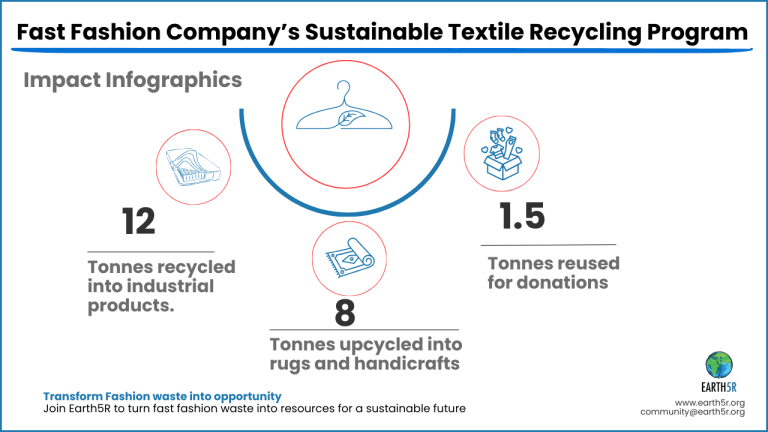
THE PROBLEM STATEMENT
The fast fashion model, while popular for its affordability, had led to an overwhelming accumulation of synthetic fiber waste. Consumers discarded clothing after a short usage period, and the synthetic materials made recycling difficult. The company needed a sustainable solution that not only reduced waste but also empowered communities.

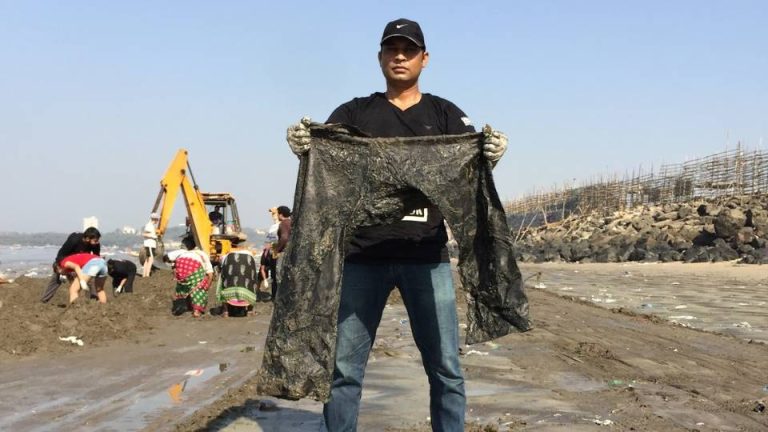
EARTH5R’S INTERVENTION & SOLUTION
Earth5r designed a comprehensive campaign to tackle the problem at both the community and environmental levels. Here’s how the project was structured:
- Collection Campaign and Setup: Earth5r launched a social campaign across different urban localities, encouraging citizens to drop off their used fast fashion clothes in specially designed collection boxes placed in residential buildings. The campaign received overwhelming community support, with thousands of items being collected.
- Segregation and Livelihood Creation: The collected clothes were sent to a facility in a nearby slum area, where EarthFiber had established a livelihood program that employed around 1,000 women. These women were trained to segregate the clothing into three categories:
- Category 1: Reusable Clothes: Clothes in good condition were disinfected and cleaned under strict hygiene conditions. These were then donated to homeless people and individuals in need through one of Earth5r’s NGO partners.
- Category 2: Upcyclable Clothes: Clothes that were not in wearable condition but could be upcycled were cleaned and transformed into new products such as rugs, handicrafts, and other sustainable goods.
- Category 3: Non-Reusable, Non-Upcyclable Clothes: Clothes that could neither be reused nor upcycled were sent to recycling facilities, where they were processed and repurposed. These synthetic fibers were used to create materials for products like construction tiles.
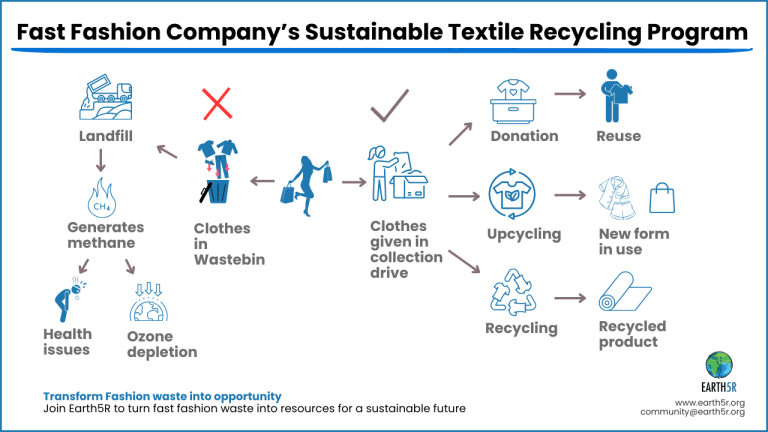
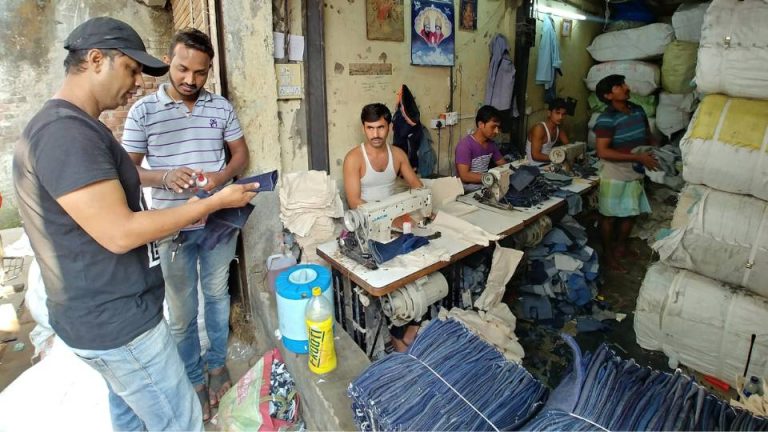
OUTCOMES
- Clothes Reused:
- 5 Tons of clothing in good condition were donated to the homeless population, ensuring essential needs were met while reducing waste.
- Clothes Upcycled:
- 8 Tons of clothing were upcycled into sustainable products like rugs and handicrafts, contributing to a growing market of eco-friendly goods.
- Clothes Recycled:
- 12 Tons of synthetic fiber clothing were sent to recycling facilities, where they were processed and repurposed into materials for construction and other industrial uses.
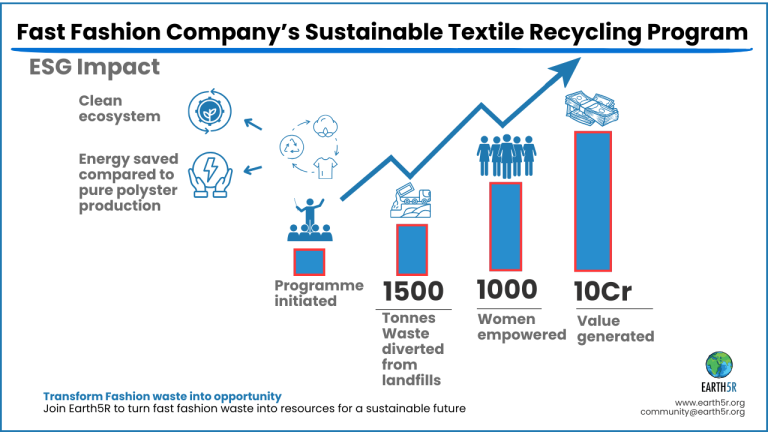
- Livelihood Creation:
-
- Approximately 1,000 women from local slum communities were provided with stable employment through this program, generating significant income and improving their families’ quality of life.
- Carbon Offset and Environmental Impact:
- The project resulted in a total carbon offset of 1,500 tons by diverting waste from landfills, reducing the need for virgin materials, and promoting reuse and recycling of synthetic fibers.
- Circular Economy Value:
- The overall value generated through upcycling and recycling efforts was approximately ₹10 Crores, contributing significantly to the local economy and supporting sustainable growth.
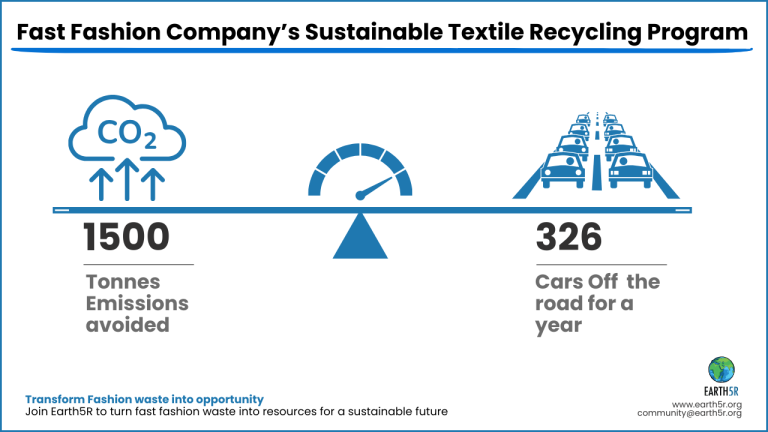
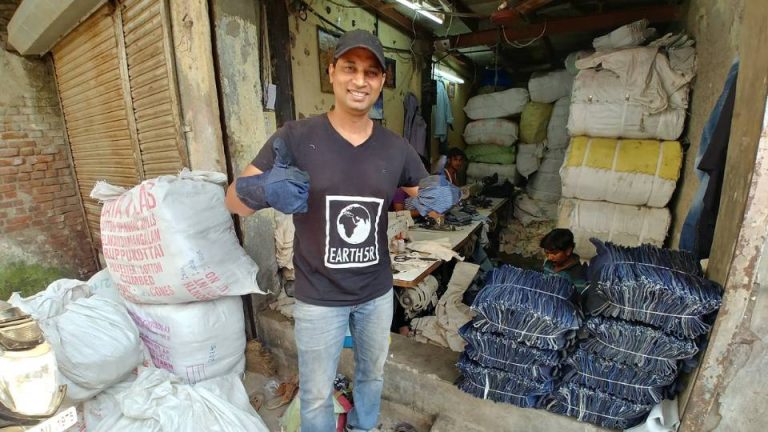
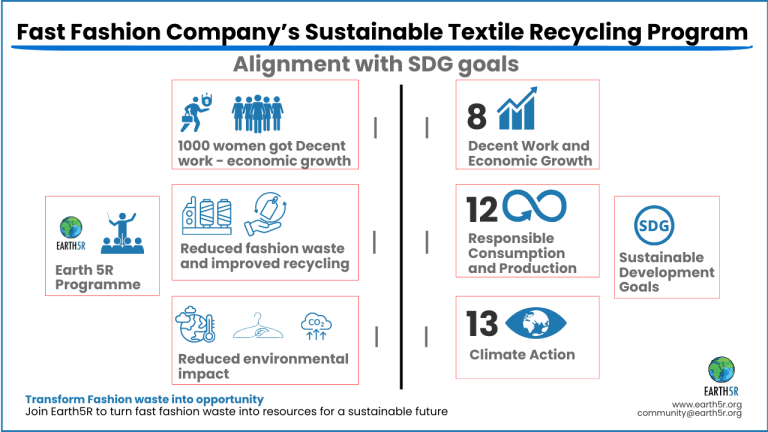
THE ROAD AHEAD
The success of this program has led the fast fashion company and Earth5r to explore further partnerships, aiming to scale this initiative across other cities. With plans to expand collection centers and establish additional livelihood programs in more urban areas, this program is set to continue reducing waste, creating jobs, and contributing to a sustainable circular economy.
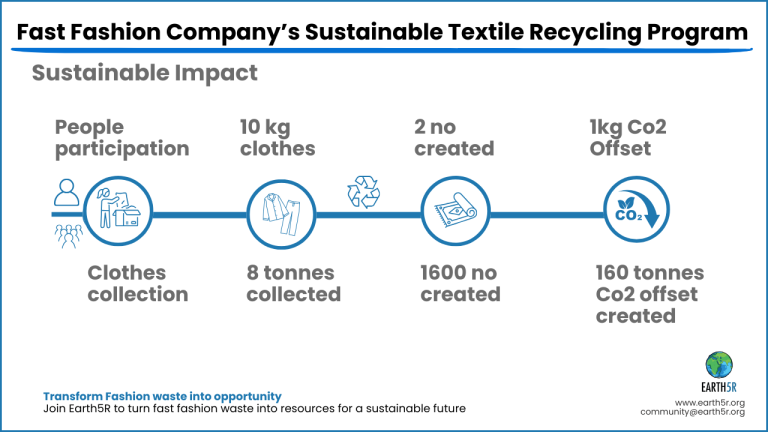
About Earth5r
Earth5r is a sustainability-driven platform that empowers companies to take on-ground action and achieve their ESG goals through innovative community engagement and circular economy models. Through its tailored programs, EarthFiber helps businesses minimize their environmental footprint while creating social value.
